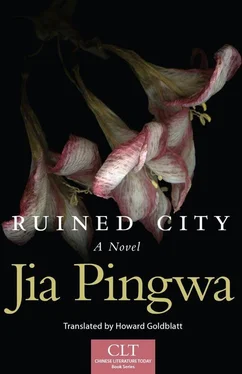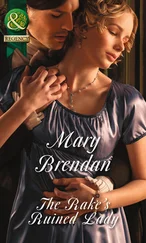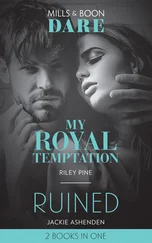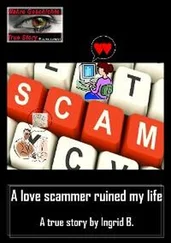Jia Pingwa - Ruined City
Здесь есть возможность читать онлайн «Jia Pingwa - Ruined City» весь текст электронной книги совершенно бесплатно (целиком полную версию без сокращений). В некоторых случаях можно слушать аудио, скачать через торрент в формате fb2 и присутствует краткое содержание. Год выпуска: 2016, ISBN: 2016, Издательство: University of Oklahoma Press, Жанр: Современная проза, на английском языке. Описание произведения, (предисловие) а так же отзывы посетителей доступны на портале библиотеки ЛибКат.
- Название:Ruined City
- Автор:
- Издательство:University of Oklahoma Press
- Жанр:
- Год:2016
- ISBN:Chinese Literature Today Book Series
- Рейтинг книги:5 / 5. Голосов: 1
-
Избранное:Добавить в избранное
- Отзывы:
-
Ваша оценка:
Ruined City: краткое содержание, описание и аннотация
Предлагаем к чтению аннотацию, описание, краткое содержание или предисловие (зависит от того, что написал сам автор книги «Ruined City»). Если вы не нашли необходимую информацию о книге — напишите в комментариях, мы постараемся отыскать её.
(
) was promptly banned by China’s State Publishing Administration, ostensibly for its explicit sexual content. Since then, award-winning author Jia Pingwa’s vivid portrayal of contemporary China’s social and economic transformation has become a classic, viewed by critics and scholars of Chinese literature as one of the most important novels of the twentieth century. Howard Goldblatt’s deft translation now gives English-speaking readers their first chance to enjoy this masterpiece of social satire by one of China’s most provocative writers.
While eroticism, exoticism, and esoteric minutiae — the “pornography” that earned the opprobrium of Chinese officials — pervade
, this tale of a famous contemporary writer’s sexual and legal imbroglios is an incisive portrait of politics and culture in a rapidly changing China. In a narrative that ranges from political allegory to parody, Jia Pingwa tracks his antihero Zhuang Zhidie through progressively more involved and inevitably disappointing sexual liaisons. Set in a modern metropolis rife with power politics, corruption, and capitalist schemes, the novel evokes an unrequited romantic longing for China’s premodern, rural past, even as unfolding events caution against the trap of nostalgia. Amid comedy and chaos, the author subtly injects his concerns about the place of intellectual seriousness, censorship, and artistic integrity in the changing conditions of Chinese society.
Rich with detailed description and vivid imagery,
transports readers into a world abounding with the absurdities and harshness of modern life.


![Matthew Vincent - [you] Ruined It for Everyone!](/books/216429/matthew-vincent-you-ruined-it-for-everyone-thumb.webp)









